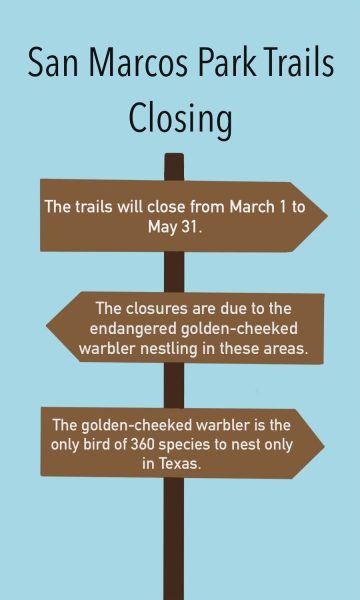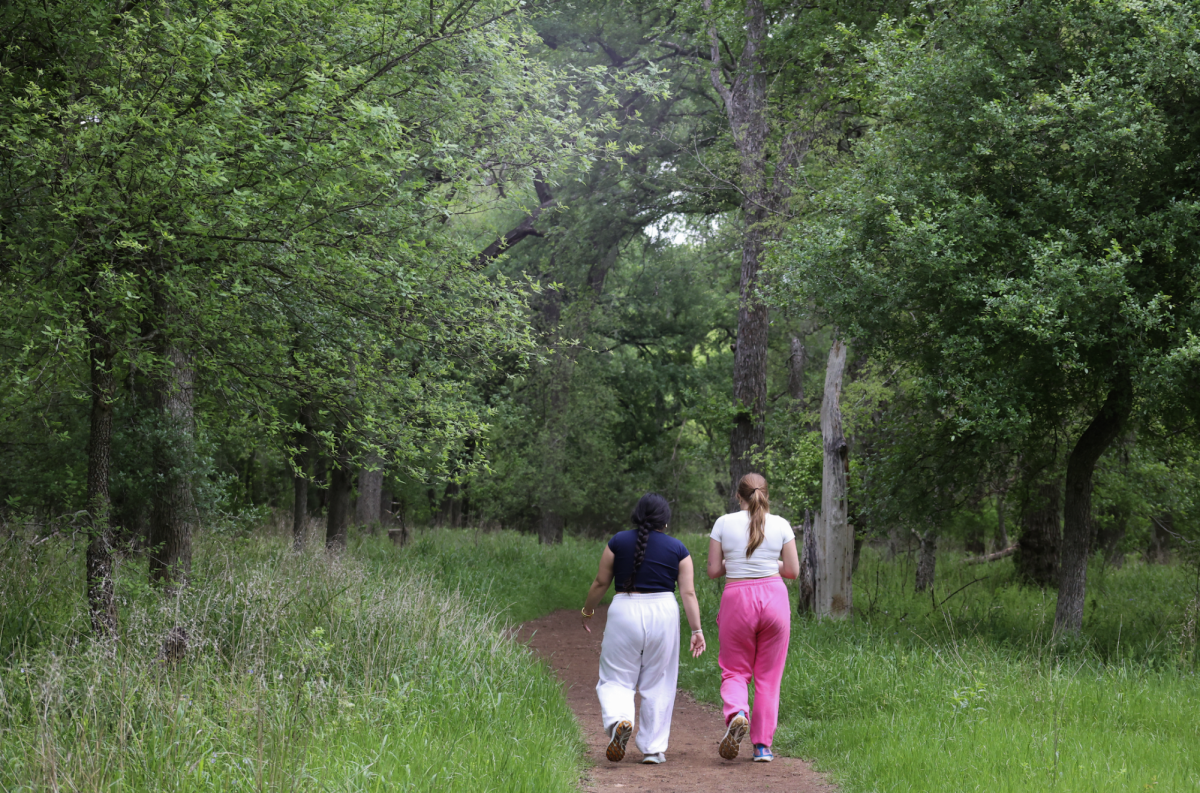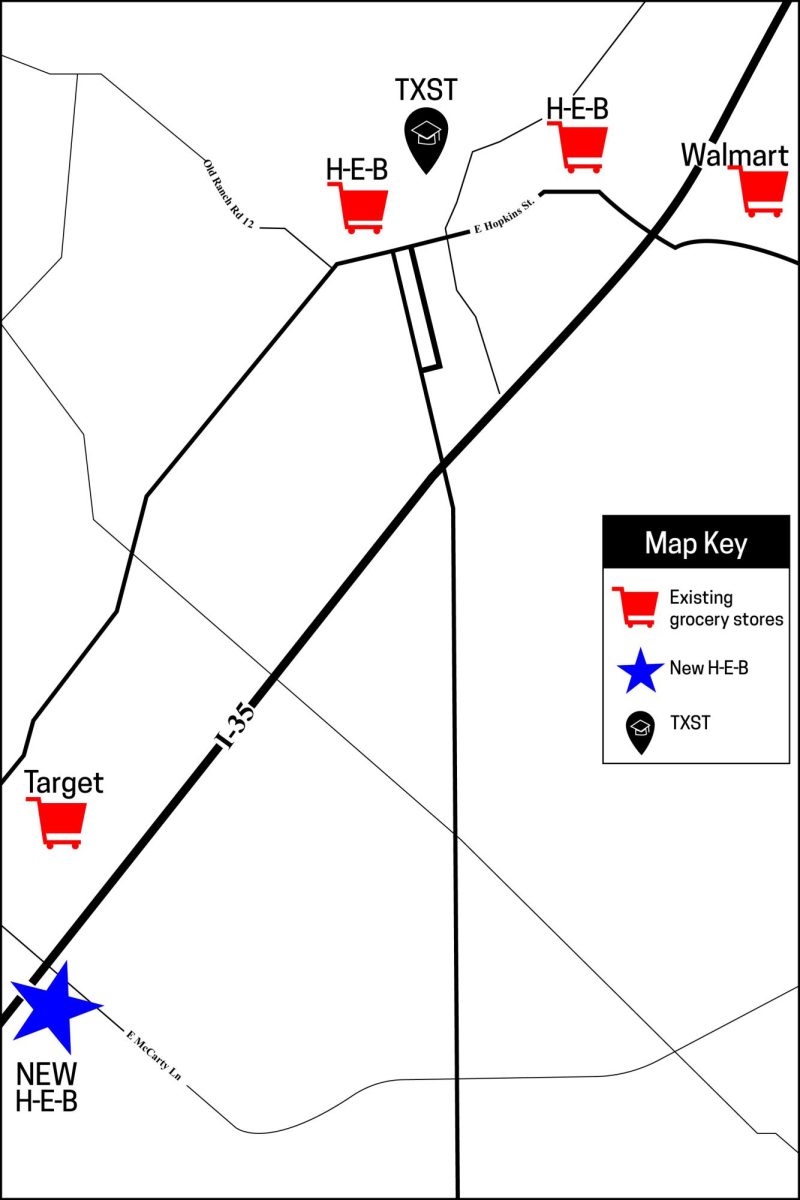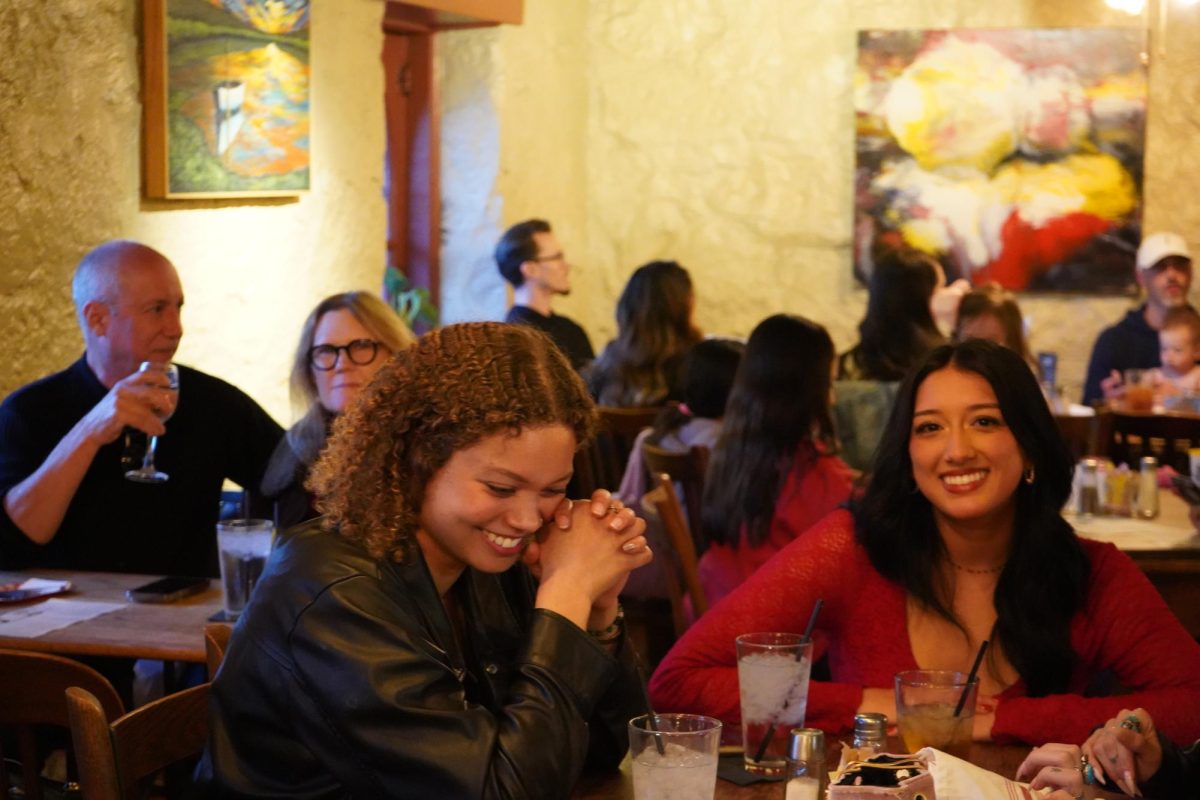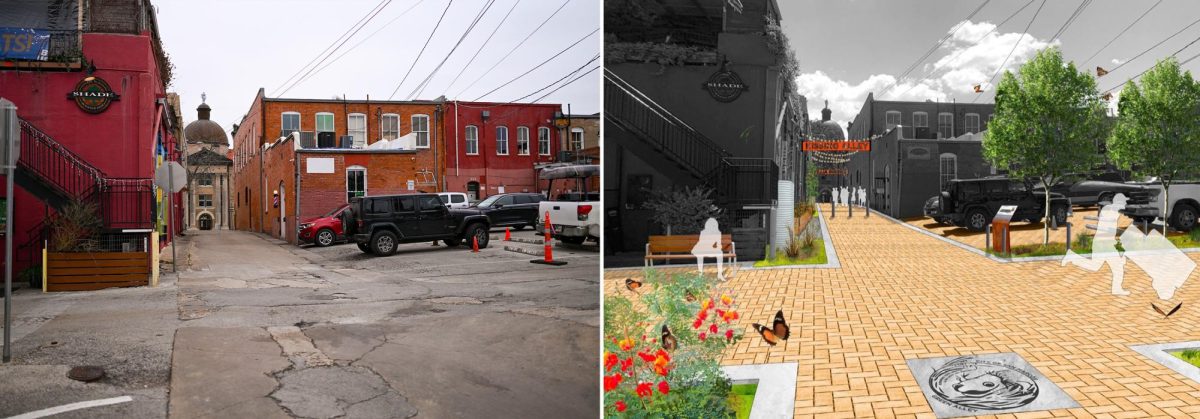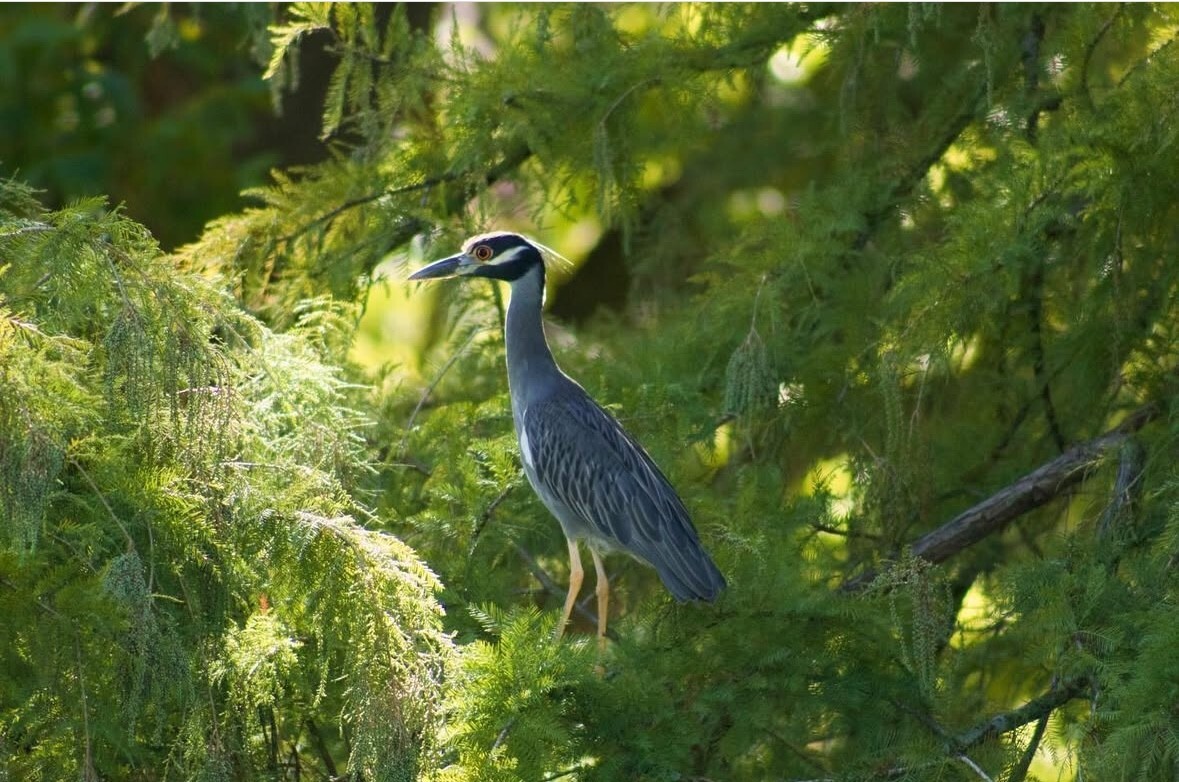Four natural area trails in San Marcos are closed to protect a rare endangered species of bird until May 31.
The golden-cheeked warbler is a small bird that only nests in Central Texas, including San Marcos. According to Texas Parks and Wildlife (TPW), the bird migrates to Texas in March to nest and leaves around July to spend the winter in Mexico and South America.
“Golden-cheeked warblers nest only in central Texas mixed Ashe juniper and oak woodlands in ravines and canyons,” the TPW webpage stated. “Warblers eat insects and spiders found on the leaves and bark of oaks and other trees. They use long strips of cedar bark and spider webs to build their nests.”
According to the San Marcos Parks & Recreation webpage, the Porcupine, Roadrunner and Grey Fox Trails are closed in the Spring Lake Natural Area and the Paraiso Trail is closed in the Purgatory Creek Natural Area. This is because of the types of trees that grow along the trails.
“The golden-cheeked warbler is an endangered species of bird that breeds only in central Texas and nests in the Ashe juniper and oak trees found in some of our natural areas,” a March 1 Parks & Recreation statement stated. “In an effort to protect these rare birds, certain trails are closed from March 1 to May 31, annually.”
Niki Lake, a specialist at The Discovery Center which upkeeps the trails, said the bird is important to the San Marcos ecosystem despite its small population.
“[The golden-cheeked warbler] benefits us in many ways,” Lake said. “They are a part of [San Marcos’] ecosystem. They eat beetles and caterpillars and spiders they get off of hardwood trees.”
Lake said the golden-cheeked warbler uses only the Ashe juniper bark, which is present along the closed trails, for nesting materials and only spider webs in the trees to hold their nests together. The closures of the trails are to protect not only the bird but the trees as well.
The golden-cheeked warbler has been listed as endangered since 1990. According to San Marcos Parks & Recreation, habitat loss and parasitism are the main causes of its decline.
Lake said climate change and overdevelopment are also a large reason the golden-cheeked warbler is classified as endangered.
“There’s a big problem with climate change surrounding birds and habitat loss with so much development happening,” Lake said. “When birds aren’t doing well then it’s probably a sign things are not going to go well for us either, so they’re kind of an indicator species.”
According to the Lady Bird Johnson Wildflower Center, the Ashe juniper tree is targeted for removal in areas of large concentrations, like San Marcos, as it contains pollen that can irritate people with allergies. The removal of this tree directly impacts the habitat of the golden-cheeked warbler.
According to the Bird Conservatory of the Rockies’ Avian Conservation Assessment Database, there is an estimated 110,000 breeding population of the bird. Additionally, the bird is rated 18 out of 20 on the Continental Concern Score, meaning it has a high concern score.
